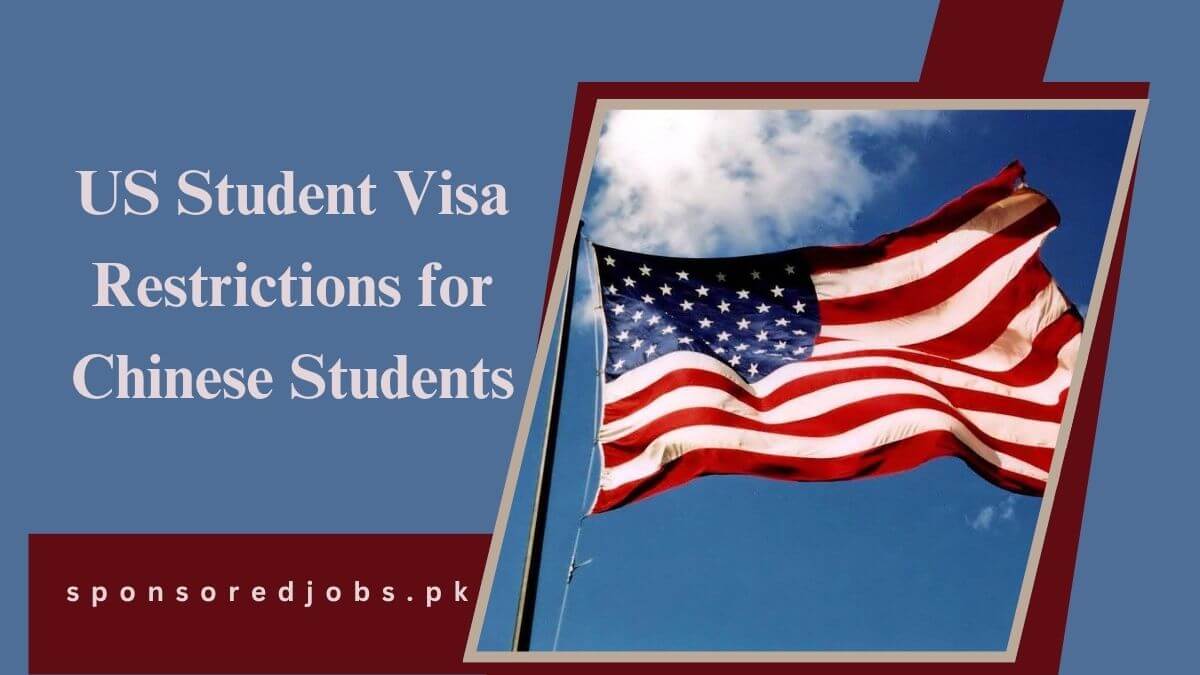International students, especially those from China and Hong Kong, are feeling uneasy about a recent visa policy remark made by U.S. Secretary of State Marco Rubio. Chinese students who are reportedly affiliated with the Chinese Communist Party or who are enrolled in unidentified “critical fields” may have their visas revoked, according to the U.S. authorities.
Additionally, all upcoming visa applications from Chinese and Hong Kong nationals are anticipated to be subject to additional scrutiny.
What Was Announced?
As stated in the official statement:
- A new policy being developed by the U.S. Department of State (DoS) could lead to the cancellation of current Chinese student visas.
- To provide Chinese and Hong Kong student applicants more scrutiny, new visa screening standards will be put in place.
- The academic disciplines that will be classified as “critical fields” have not yet been specified by the government.
Check Also: Prepare Your IQA for New Zealand Visa Application – Complete Guide
Benefits of US Student Visa Restrictions for Chinese Students:
- Promotion of Domestic Educational Growth in China: Restrictions on visas encourage more investment and creativity in China’s own research institutes and universities.
- Encouragement of Other Study Locations: Chinese students are expanding their horizons by applying to colleges in Europe, the UK, Australia, and Canada.
- Acceleration of China’s Self-Reliance in Technology and Research: China is investing more in its own R&D and tech ecosystems as a result of less access to US labs and programs.
- Asia’s Regional Education Hubs Are Being Stimulated: As a result of US limitations, countries such as South Korea, Japan, and Singapore are seeing an increase in the number of Chinese students enrolled.
- Decreased Brain Drain from China to the US: By keeping top Chinese talent in the US, visa restrictions support the nation’s long-term scientific and economic development.
- Enhanced Bilateral Cooperation in Asia and Europe: Chinese institutions and students are now establishing closer relations with universities outside of the United States.
- An increase in Chinese-led international academic: programs can be attributed to restrictions that have prompted Chinese institutions to establish offshore campuses and joint ventures with partners outside of the United States.
- Encouragement of Policy Reforms in International Education Markets: In an effort to draw in gifted Chinese students who the US has rejected, other nations are changing their student visa regulations.
- Urging Students to Consider Online Education: Chinese students are looking to prestigious online schools for international credentials as a result of the uncertainties surrounding US visas.
- Understanding Geopolitical Risks in Education Planning: Chinese students are now better at long-term planning by being more strategic and cautious when choosing study abroad locations.
- Decrease in Dependency on US Higher Education System: As Chinese reliance on US universities declines, a more equitable international student flow is emerging.
- More Competitive Admissions in Other Countries: As a result of the change in student applications, foreign student cohorts are becoming stronger in other countries, which raises academic standards worldwide.
- Strengthening of China’s Soft Power Through Education Diplomacy: As it develops its own global education brand, China is luring overseas students with more collaborations and scholarships.
- Chinese Students’ Resilience and Adaptability: These limitations are helping to raise a generation of adaptable, internationally conscious students who pursue a variety of career paths.
- Innovation Potential in Chinese Educational Models: Chinese teachers and students are working together to create new curricula that combine Western knowledge with local context in order to overcome visa restrictions.
What This Means for Students
Universities, foreign student offices, and the hundreds of Chinese students presently enrolled in American universities are extremely alarmed by this statement. Important ramifications include:
1. Visa Revocations May Be Issued Individually
- The U.S. Embassy or Consulate or the U.S. Department of State will get in touch with you personally if your visa is revoked.
- Verify any previous email addresses you may have used, as notifications will probably be sent to the one you used when applying for a DS-160 visa.
- No notification will be sent to your university. If you receive such a warning, you have to notify your international adviser or Designated School Official (DSO) right away.
2. Impacts May Extend Beyond Students
Although the policy focuses on students at the moment, it may soon be subject to further scrutiny for:
- Academics
- Research personnel
- Candidates for postdoctoral posts and J-1 exchange visitor programs
3. Avoid International Travel for Now
It is highly recommended that students from China and Hong Kong avoid overseas travel unless absolutely required due to this policy change and the recent suspension of arranging interviews for F and J visas.
Frequently Asked Questions:
What are the reasons behind the US considering restrictions on student visas for Chinese students?
The US government has expressed concerns about national security, intellectual property protection, and geopolitical tensions. These factors may lead to tighter visa scrutiny or potential revocations for certain Chinese students, particularly in STEM fields.
Are all Chinese students affected by these restrictions?
No. The restrictions (if implemented) are likely to target specific individuals or academic disciplines, such as aerospace, artificial intelligence, or advanced engineering, rather than all Chinese students.
Can visa-holding students be deported if policies change?
Generally, no. Students following all immigration laws are unlikely to be deported. However, new restrictions could impact visa renewals, OPT approvals, or travel plans.

